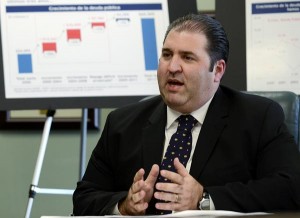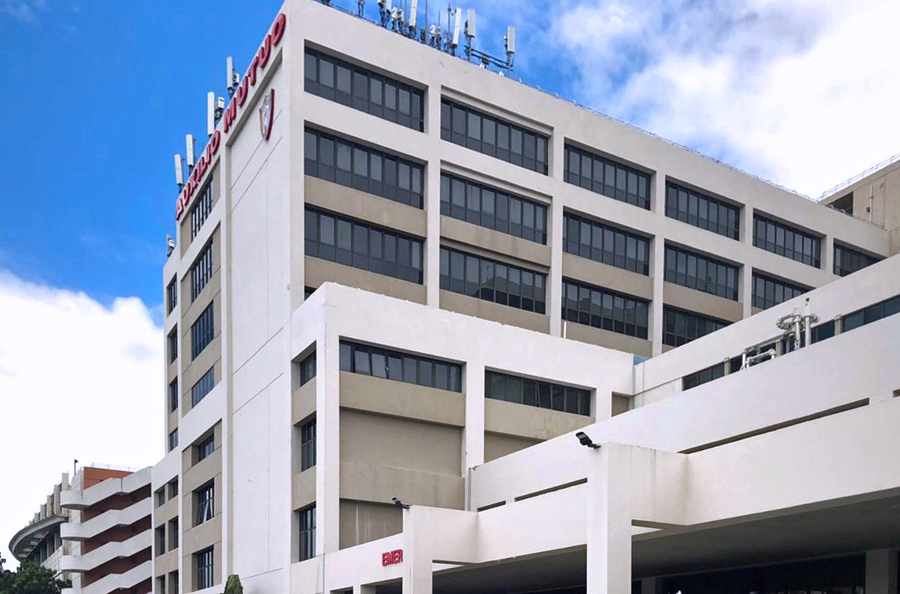Moody’s cuts Puerto Rico’s credit affecting $38B in debt


New York-based credit ratings agency Moody’s downgraded the commonwealth’s credit rating to near-junk status.
Moody’s Investors Service downgraded Puerto Rico’s general obligation rating Thursday to Baa3 from Baa1, affecting about $38 billion of the island’s debt held by more than a handful of agencies.
The credit rating agency based its decision on weak economic growth prospects after six years of recession that it believes could be further dampened by the local government’s efforts to control spending and reform its retirement system, both of which are needed to stabilize the commonwealth’s financial results.
“Debt levels are very high and continue to grow. Financial performance has been weak, including lackluster revenue growth and large structural budget gaps that have led to a persistent reliance on deficit financings and serial debt restructurings to support operations in recent years,” the agency noted in its rationale. “[There is a] lack of meaningful pension reform and no clear timetable to do so. Reform of the commonwealth’s severely underfunded retirement systems is needed to avoid asset depletion and future budget pressure.”
The retirement system’s precarious financial situation was underscored several times throughout the report, in which Moody’s said there has been a “lack of progress” by the government to address the problem.
“In 2011, the commonwealth completed a modest first phase of pension reform [adopting an ascending schedule of future employer contributions and limiting the size of personal loans available to members], but did not undertake further meaningful additional reforms. The timetable for additional reforms remains unclear,” Moody’s said.
Meanwhile, the agency noted Puerto Rico’s protracted recession as an ongoing negative, while giving credit for slight improvement in some economic indicators, such as retail, auto and cement sales, and the Government Development Bank’s Economic Activity Index.
“The commonwealth’s economy lacks clear growth drivers as its manufacturing sector continues to see employment reductions. Population declined by 3 percent from 2005 to 2011 and slight declines are expected in the near term,” Moody’s said. “Unemployment has ticked up slightly to 13.8 percent after reaching a low of 13.5 percent versus the U.S. average of 7.8 percent at the end of the first quarter of fiscal 2013. Tourism has been a relatively good performer, but it remains relatively small and is susceptible to weakness in the larger U.S. economy.”
The government reacts
The rating downgrade to near-junk status comes as the island prepares for a new government to take over the reins in January, making it a premature decision for some — even members of the current administration.
“Obviously, we’re not pleased with Moody’s action today, and we disagree with the fact that they did not give the incoming administration more time to introduce its fiscal team and their work plan to address these issues,” GDB President Juan Carlos Batlle said. “Moreover, we disagree with Moody’s interpretation of many aspects of the government’s present fiscal situation.”
“But, in essence, the report validates what we have been saying in the past months: first, that in the last years considerable progress has been made in economic and fiscal matters; second, that this progress is not enough and we have to do more; and third, that there is no time to lose, that the new administration needs to move quickly to submit its plan to continue addressing the economic and fiscal situation,” he said.
Meanwhile, Gov. Luis Fortuño said in a televised interview that he had spoken to credit ratings agencies Thursday, to “try to help the new administration.”
“I spoke in favor of giving space to the new government,” he said during an interview with Univision from Washington. “I was speaking in favor of the new administration and the people of Puerto Rico.”
On the other hand, the future chairman of the House Finance Committee, Rep. Rafael “Tatito” Hernández, blamed the Fortuño administration for Moody’s decision.
“We believe the Planning Board’s revision and decision to lower the economic growth forecast from 1.1 percent to 0.6 percent affected this determination because it reflects the projected income was overstated,” said Hernández.
“Now, it’s our primary responsibility to present immediate action that addresses the problem of [insufficient] General Fund revenue. We’re analyzing some measures that will help inject the General Fund with new money,” he said, adding Moody’s decision responded to “historical situations that were used as a basis for projecting future expectations as projected by the Fortuño administration.”
Economists offer analysis, solutions
“I think the action is premature because the incoming administration has not even taken office and has not had an opportunity to formally present its economic and fiscal policy as well as its plan for the retirement system,” said Sergio Marxuach, director of public policy for nonprofit think-tank Center for the New Economy.
“Moreover, none of the factors Moody’s mentioned to base its decision — a weak economy, high unemployment, unsustainable levels of debt, general fund that rely on a temporary tax, the use of debt to finance deficits, and the actuarial deficit of the retirement fund — were unknown or is news to markets,” he said.
“Having said that, I think the degradation generally reflects unhappiness with the lack of progress in these areas, and perhaps more importantly, that analysts do not expect much progress in the short to medium term,” he said.
Meanwhile, Economist Vicente Feliciano, president of Advanced Business Consulting, said: “Moody’s is stating clearly that it does not feel comfortable with what it is hearing from Puerto Rico. Some bond issues went into junk status. This means that PRASA cannot issue bonds and probably the same holds true for the Highway Authority.”
“Increases in water rates and highway tolls look almost inevitable. If no critical decisions are taken regarding the retirement system, expect shortly for Pension Obligation Bonds to also fall into junk status,” he predicted. “The Greek scenario is still very far away, but it’s no longer inconceivable.”
For Marxuach, the solutions lie in: working quickly to establish a viable plan for the retirement systems; take action to stabilize General Fund revenue by extending the life and increasing the tax imposed through Law 154 and suspend the second phase of the fiscal reform; use newly generated collections from those two measures to stimulate the economy in the short-term; restructure the operations at PRASA and the Highway Authority, including increasing rates and tolls, and renegotiating each agency’s debt; and approving legislation to limit the growth of public debt according to the GDP’s nominal growth.













